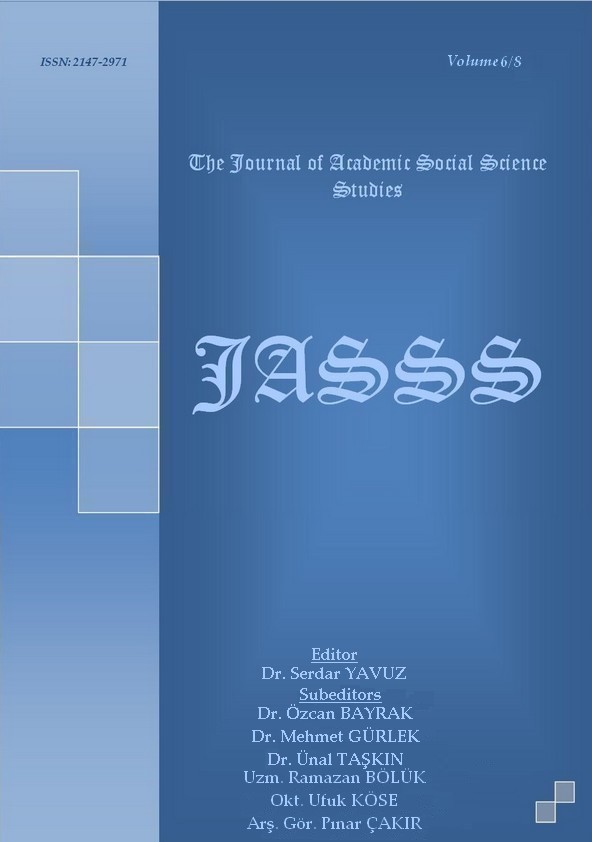Author :
Abstract
18.yüzyıl Avrupa'sı, Aydınlanma döneminin etkisiyle bir eşitlik savaşı vermekteydi. 1789 yılında Fransa'da gerçekleşen özgürlük, eşitlik, adalet ve kardeşlik fikirleri kısa sürede tüm Avrupa'yı etkisi altına almıştı. Aydınlanma döneminden Fransız İhtilaline kadar geçen sürede mutlakıyet yönetiminin etkisinde olan devletler ve ülkenin sahibi olarak görülen kralların yetkileri kısıtlanmıştı. Böylece bu tarihe kadar ezilen ve hakları olmayan halk, özellikle köylerde yaşayan halk eşitlik olgusuyla birlikte haklara sahip olmaya başlamıştı. Bu haklardan birisi ve en önemlisi de eğitim hakkıydı. Sosyal Eğitimi, yoksul halkın eğitimini savunan Johann Heinrich Pestalozzi tam da yaşanılan bu eşitlik arayışları içerisinde eğitimci olarak görev yapmış ve eğitimin sosyalleşmesi, eğitim hakkının eşit şekilde dağıtılmasının mücadelesini vermiştir. Pestalozzi'nin yaşadığı dönemde sınıfsal farklılar mevcuttur ve en ezilen sınıfsal tabaka ise yoksullar yani halktır. O, yaşadığı dönemde "Sosyal Eğitim" kavramını getirmiş ve eğitim hakkından yoksun olan halkı eğitmekle kalmamış, onları hayatın içinde, ihtiyaçlara uygun olarak üretici bireyler olarak yetişmelerini sağlamıştır. Sosyal Eğitim fikrinde Pestalozzi ile birleşen George Kerschensteiner da halkın eğitimi üzerinde durmuş ve kendisi eğitim tarihi literatürüne "İş Okulu" kavramını getirmiştir. Kerschensteiner'in yaşadığı dönemde ülkesi Almanya'da siyasi birlik kurulmuş, ekonomik ve siyasi yapılanma ile meşgul olan ülkenin yakın zamanda büyük bir dünya savaşına baş aktör olarak katılması devleti olumsuz yönde etkilemiştir. Bu olumsuzluklardan en çok etkilenen de halk olmuştur. Benzer siyasi ve ekonomik sıkıntıların yaşandığı ülke olarak Türkiye'de de bu olumsuzluklar en çok halkı etkilemiştir. 20.yüzyılın başlarında ölüm kalım savaşı veren bir devletin yeniden yapılanması sırasında eğitim ideolojisi halk eğitimi, sosyal eğitim olmuştur. Halkın eğitilmesi, köylü halkın eğitilmesi temel hedef iken, 2. hedefte üretime dayalı, işe dayalı bir eğitim anlayışı olarak gerçekleşmiştir. Bu anlamda Pestalozzi ve Kerschensteiner'in halk eğitimi, iş eğitimi fikirlerini savunan ve onların eserlerinden yaptığı tercümelerle bu fikirleri Türkiye'ye yerleştiren eğitimcilerden birisi İsmail Hakkı Tonguç'tur. İsmail Hakkı Tonguç'un diğer tercüme yapan ve bu fikirleri ülkeye kazandıran eğitimcilerden farkı, bu fikirleri uygulamaya geçiren bir isim olmasıdır. Çalışmamızda Pestalozzi ve Kerschensteiner'in sosyal eğitim ve İş okulu fik
Keywords
Abstract
The 18th century Europe was struggling for equality with the impact of the Age of Enlightenment. The mottos liberty, equality, and fraternity, which were realized in France in 1789, had their effects around Europe in a short time. The most significant of these rights was the right to receive education. Being a country with similar political and economic inconsistencies, in Turkey these problems had their most severe effects on the public. The education ideology of the country which struggled for life-or-death at the start of the 20th century developed as public education and social education during its construction. In this sense, one of the educators to support the ideas of Pestalozzi and Kerschensteiner on public education and industrial school and to establish these ideas in Turkey by his translations is Ismail Hakkı Tonguç. His difference from other educators who made translations and contributed to the country is that he was the one to put these ideas into practice. To compensate for this deficiency, in 1935 Minister of Culture Saffet Arıkan appointed Ismail Hakkı Tonguç as the General Director of Elementary Education (1935-1946). There were many reasons to choose Tonguç for this duty. Tonguç was a graduate of Istanbul Male Teachers School in 1918 and he had attended the seminars on teacher education and work education given at the Ettlingen Teachers School and Leipzig Pedagogy Institute in Germany. Between 1925-1938 he was sent to Europe (Germany, Italy, Swiss, France, England, Bulgaria, Hungary and Austria) several times by the Ministry of Culture in order to study rural education in these countries. He also wrote and translated books about the training of village teachers and instructional method . As a result of these influences, Tonguç prepared the regulations for his planned Village Institutes. He also presented a proposal and the justification for the creation of the Village Institutes in the Grand National Assembly of Turkey in 1935. Based on the data of the national census of 1935, only 23.3 per cent of the males and 8.2 per cent of the females were literate. Though attendance at the elementary level was compulsory by law, and 80 per cent of the children in urban areas were being educated, only 26 per cent of those in villages were able to attend school . He founded the Village Institutes along with Hasan Ali Yücel. In this study, within the scope of Pestalozzi’s and Kerschensteiner's ideas of social education and industrial sch





